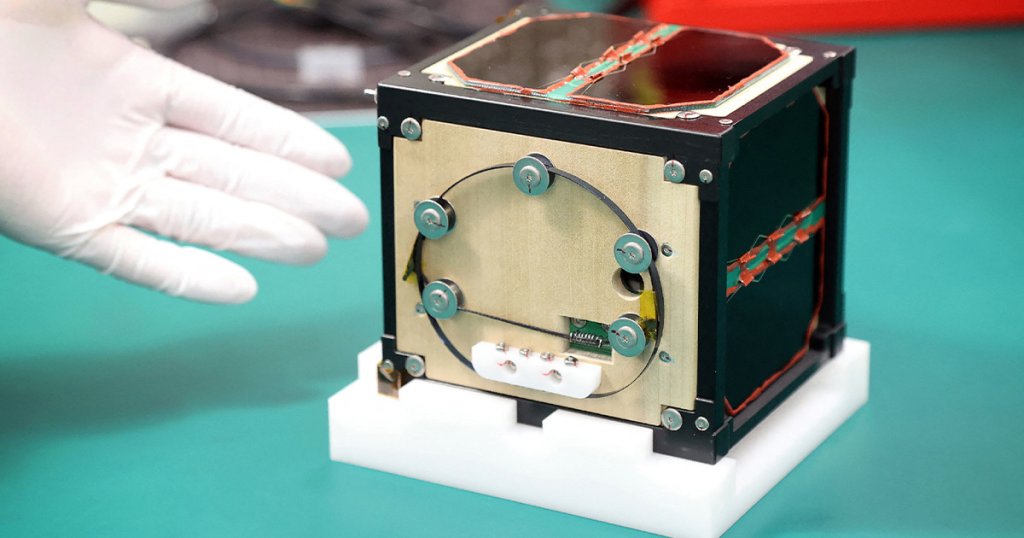“Satellites that are not made of metal should become mainstream.”
LignoSat
A team of Japanese scientists has finished constructing the world’s first wooden satellite, Agence France-Presse reports.
The satellite dubbed LignoSat, a collaboration between Kyoto University and the company Sumitomo Forestry, is reportedly slated for launch in September onboard a SpaceX rocket. If successful, the tiny cubesat — seriously, the lil’ guy measures just four inches on each side! — could represent a major breakthrough in space sustainability efforts.
“Satellites that are not made of metal should become mainstream,” said astronaut and Kyoto University professor Takao Doi at a press conference, as quoted by the AFP.
Coulda Wooda
Conventional satellites are mainly comprised of metals — predominantly aluminum — and plastic.
But satellites don’t stay in space forever. When they’re retired, they’re sent to reenter the Earth’s atmosphere and burn away. However, this practice of satellite cremation might be coming at a great environmental cost, as scientists worry that metal particulates released into the atmosphere from burning aluminum and other satellite materials are depleting atmospheric ozone.
That’s where LignoSat, which is made of durable magnolia wood, comes in. The idea is that it’ll burn up entirely upon reentry, vastly reducing its environmental impact compared to traditional metal spacecraft.
That said, LignoSat is still experimental and it’s not going directly into orbit. The SpaceX rocket will first drop it off at the Japanese Space Agency’s experimental module at the International Space Station. The satellite will be released from there, and hopefully, useful data will be sent back to monitoring researchers.
“Data will be sent from the satellite to researchers who can check for signs of strain,” a Sumitomo Forestry spokesperson told the AFP, “and whether the satellite can withstand huge changes in temperature.”
In short, we’ve yet to see how the unique contraption will actually fare once it’s out in the cosmos.
But as we’re currently filling the final frontier with toxic metals and other garbage, this very cool experiment, no matter how it shakes out, is undoubtedly a step in the right direction. We’re rooting for you, LignoSat!
More on satellites: Giant Piece of Space Junk Crashes down on Farm of Canadian, Who Intends to Sell It and Spend Money on Hockey Rink

